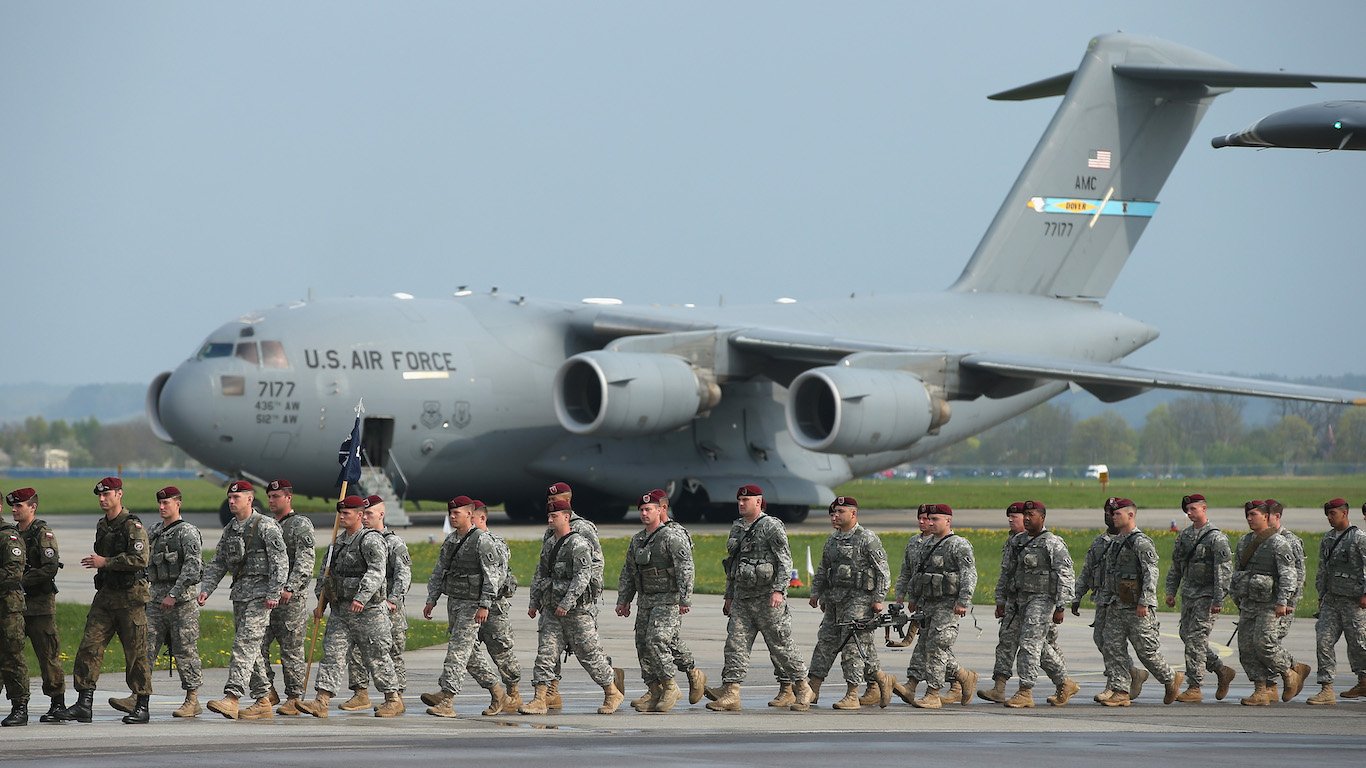

Boeing Co. (NYSE: BA) reported Tuesday morning that first-quarter deliveries of its 737 family of jets totaled just 89, down by nearly half the number of the planes delivered in the prior quarter. There can be little doubt that the crash of the Ethiopian Air flight on March 10 that killed 157 people is the reason for the sharp decline.
Boeing had no comment on its quarterly deliveries. As always, the press release provides only the number of planes delivered in the quarter for both its commercial and defense divisions. Year-to-date totals are also reported for the other three quarters of the year.
Deliveries of 747s doubled from one to two quarter over quarter but declined for all other aircraft families. The 787 Dreamliner posted a drop from 39 to 36 deliveries, while 777 deliveries dipped from 11 to 10.
The company delivered 132 737 family jets in the first quarter of 2018, 137 in the second quarter, 138 in the third quarter and 173 in the fourth quarter. Deliveries include both the prior generation of 737s and the 737 MAX 8 and MAX 9. Unfilled orders for the non-MAX planes total 69, including six business jets. Unfilled MAX orders total 4,625.
Boeing delivered 10 777s in the quarter, the same plane it modifies to become the KC-46A tanker for the U.S. Air Force. The company delivered seven of the new tankers to the Air Force last quarter, even though the service halted deliveries for two weeks following the discovery of loose tools and other items left on planes it had already received. About a week or so later, the Air Force again suspended deliveries for the same problem. Boeing’s KC-49A program is billions of dollars over budget and about two years behind schedule.
But the total number of Air Force tankers remaining to be delivered over the next couple of years is less than the number of 737s Boeing delivered in the fourth quarter of 2018. Getting the 737 back on track is a must for the company, and the sooner the better.
Boeing announced last week that it would cut 737 production by about 20%, from 52 to 42 planes a month. That will help keep down the inventory of finished but undelivered planes, at the same time it plays havoc with the company’s cash flow. Boeing is scheduled to announce first-quarter results on April 24, and the failure to deliver so many 737s can’t help but affect expected cash flow.
At a rate of 52 a month, the 737 MAX 8 likely would have generated at least a third of its selling price once the plane was delivered to a customer. The list price of the plane is $121.6 million, but the actual negotiated price could be as much as 40% less, or around $73 million. Assume that the customer pays a third when the firm order is placed, another third when the plane enters the assembly line and the final third on delivery. If Boeing had delivered 156 737 MAX 8s in the first quarter (52 each month), the final payments would have totaled nearly $3.8 billion. If there’s good news for Boeing here it’s that this cash flow can be made up later, once the plane is no longer grounded and deliveries can resume.
While some carriers will seek to cancel their orders for the 737 MAX (Indonesia’s Garuda already has said it has done so), many more will not. First, Boeing’s reputation will help pull it through. The 737 family of planes has been around for half a century and crashes are exceedingly rare. On top of that, CEO Dennis Muilenburg’s admission that Boeing “owns” the problems with the 737 MAX and will fix them is a refreshing change from previous chief executives who preferred to dodge responsibility for any problems.
Second, each of those 4,625 orders came with a deposit of around 20% or more of the final cost of the plane. Unless an airline wants to go to court to try to get Boeing to get that deposit back, that cash is now Boeing’s. The airlines are unlikely to choose to write off somewhere around $20 million per order they cancel.
For practically any other company, an announcement that deliveries of the company’s cash cow product were cut in half would send the stock tanking. Boeing’s shares traded down about 1.45% in the noon hour Tuesday, at $369.10 in a 52-week range of $292.47 to $446.01. The Dow Jones industrials were down about 0.6%.
Thank you for reading! Have some feedback for us?
Contact the 24/7 Wall St. editorial team.
 24/7 Wall St.
24/7 Wall St.